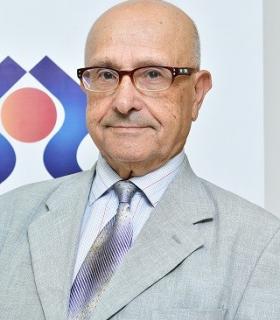National Preventive Mechanism against Torture (NPM)
The National Preventive Mechanism against Torture (NPM) is an independent instrument for monitoring places of deprivation of liberty, established under Article 12 of Law 76-15 on the reorganization of the National Human Rights Council (CNDH). It was set up in line with Article 3 of the Optional Protocol to the Convention against Torture and Other Cruel, Inhuman or Degrading Treatment or Punishment (OPCAT), which was ratified by Morocco on 24 November 2014. This article stipulates that “each State Party shall set up, designate or maintain at the domestic level one or several visiting bodies for the prevention of torture and other cruel, inhuman or degrading treatment or punishment.”
The NPM examines, in accordance with Article 13 of Law 76-15, the situation and conditions of persons deprived of their liberty by:
Conducting regular visits, whenever requested by CNDH, to various places of deprivation of liberty or where there are persons who are potentially deprived of their liberty. These visits aim to enhance their protection against torture and cruel, inhuman or degrading treatment or punishment.
Formulating recommendations that would improve the treatment and conditions of persons deprived of their liberty and prevent torture.
Submitting proposals or observations regarding current legislation or draft/proposed laws related to the prevention of torture.
Coordinator and Members
Library
FAQ
The National Preventive Mechanism against Torture (NPM) is an independent instrument for monitoring places of deprivation of liberty. It was established under Article 12 of Law 76-15 on the reorganization of the National Human Rights Council (CNDH) in accordance with Article 3 of the Optional Protocol to the Convention against Torture and Other Cruel, Inhuman or Degrading Treatment or Punishment (OPCAT), ratified by Morocco on November 24, 2014. This article stipulates that “each State Party shall set up, designate or maintain at the domestic level one or several visiting bodies for the prevention of torture and other cruel, inhuman or degrading treatment or punishment."
The NPM examines, in accordance with Article 13 of Law 76-15, the situation and conditions of persons deprived of their liberty by:
• Conducting regular visits, as requested by CNDH, to various places of deprivation of liberty or where there are persons who are potentially deprived of their liberty. These visits aim to enhance their protection against torture and cruel, inhuman or degrading treatment or punishment.
• Formulating recommendations that would improve the treatment and conditions of persons deprived of their liberty and prevent torture.
• Submitting proposals or observations regarding current legislation or draft/proposed laws related to the prevention of torture.
In accordance with Article 13 of Law 76-15, deprivation of liberty refers to any action of detaining, imprisoning or confining individuals in a public or private detention facility, where they are unable to leave at their own discretion. Such deprivation may be authorized by judicial, administrative or other authorities.
The relationship between the NPM and the Subcommittee on Prevention of Torture and other Cruel, Inhuman or Degrading Treatment or Punishment (SPT), established under the Optional Protocol to the Convention against Torture and Other Cruel, Inhuman or Degrading Treatment or Punishment (OPCAT), is based on cooperation, consultation and mutual assistance, facilitated through CNDH Chairperson whenever such cooperation is requested.
Public authorities responsible for places of deprivation of liberty shall, upon request, facilitate the NPM's work by enabling it to:
Access all information related to the number and location of places of deprivation of liberty and the number of persons held there;
Access all information related to the treatment and conditions of detention of these persons;
Access to all places of deprivation of liberty, including their facilities;
Select the places of deprivation of liberty for visiting and the persons to meet;
Conduct private interviews with persons deprived of their liberty without the presence of witnesses and interview them individually.
Seek the assistance of an interpreter or any other person deemed beneficial by the mechanism when necessary.
Individuals, whether natural or legal, who report any information or data to the NPM are entitled to the protection afforded to informants as outlined in Article 82-9 of Law No. 22.01 on Criminal Procedure.
Information shared with the NPM remains confidential. It is strictly prohibited to disclose any personal data without the explicit consent of the person concerned or his legal representative, with penalties enforced as stipulated in Chapter 446 of the Criminal Code.
No person, whether natural or legal, shall be punished for reporting any information, whether accurate or inaccurate, to the NPM.
If a person reports incorrect information to the NPM and subsequently publishes it through any means, they will be subject to penalties stipulated in Chapter 445 of the Criminal Code.
The NPM's coordinator and members are entitled to essential protection during the execution of their assigned missions, safeguarding them from any interference or pressure that may arise. Consequently, they cannot be subject to arrest, investigation, or prosecution based on the opinions and actions they express.
The functions of NPM members cannot be terminated while they are actively performing their duties, except in cases outlined in Article 39 of Law 76-15 on CNDH's reorganization.
Contact
Conseil national des droits de l'Homme (National Human Rights Council)
N° 22 Avenue Riad Hay Riad BP 21527, Rabat - Maroc
Tel : 05.37.54.00.00
Fax : 05.37.54.00.01
Email : cndh@cndh.org.ma








